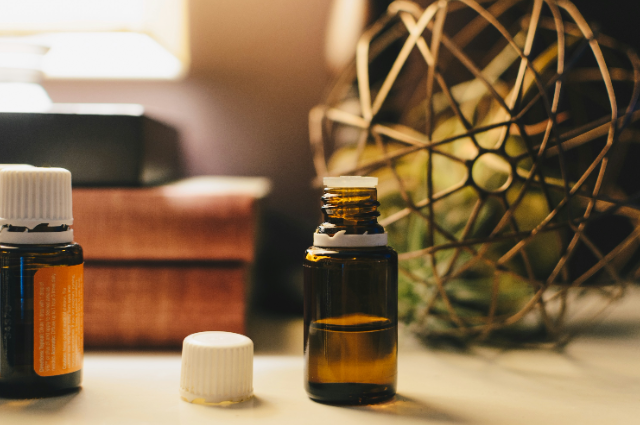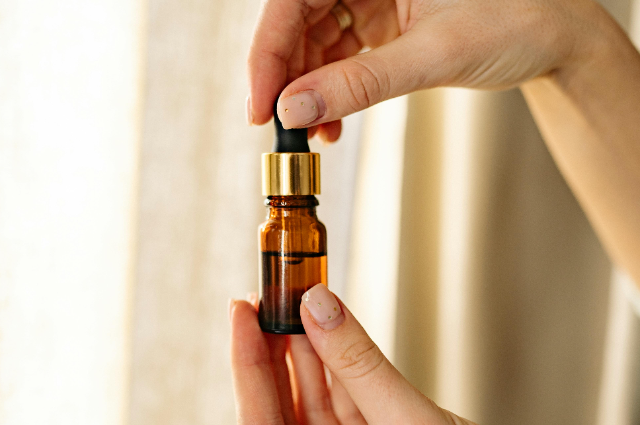
Photo by Kelly Sikkema on Unsplash
A controversy is brewing among allopathic and homoeopathic doctors following the Maharashtra government's decision to allow homoeopathic doctors who complete a one-year certificate course in modern pharmacology (CCMP) to prescribe allopathic medications.
The CCMP provides foundational knowledge and skills in the study of drugs and their effects on living organisms and their therapeutic uses. It is beneficial to those wanting to enter the pharmacy profession or enhance their understanding of pharmacology for various healthcare roles.
Background
The Maharashtra government had issued a notification allowing homoeopaths with an LCEH degree (licentiate of the court of examiners in homoeopathy), who completed their CCMP between 1951 and 1982, to register with the Maharashtra Medical Council (MMC) and practice allopathy. The LCEH degree was recognized by the Central Council of Homoeopathy in 1951, and it was abolished by it in 1982.
This CCMP course was started by the MMC after the government amended the Maharashtra Medical Council Act 1965 (MMCA) and the Maharashtra Homoeopathic Practitioners Act 1960 (MHPA) in 2014. After that, a few homoeopathy doctors completed the course and began treating patients and prescribing allopathic medicines. However, the Indian Medical Association (IMA) and other medical bodies protested the move, citing concerns about patient safety and the potential for “compromised” medical standards due to the shorter training period for homoeopaths compared to the standard of training given to the MBBS doctors.
Subsequently, the IMA (Pune) moved the Bombay High Court, challenging the Govt’s decision to allow homoeopaths to practice allopathy by completing a one-year CCMP course. IMA, in its petition, stated that the Indian Medical Council Act 1956 provided that the allopathic medicine course can only be approved by the Indian Medical Council (IMC), and Since the Bachelor of Homoeopathic Medicine and Surgery (BHMS) or LCEH doesn’t fall in its ambit, allopathy cannot be practiced by homoeopaths. The IMA also argued that it was unlawful for homoeopaths with a BHMS/LCEH degree to register as allopathic doctors with the MMC and also emphasized the potential risk to patients if homoeopaths were permitted to practice allopathic medicine without proper training.
However, the Bombay High Court, in December 2014, refused to stay the amendment to the MHPA and the MMCA. In response to this decision, an appeal was filed in the Supreme Court, which, in July 2015, declined to interfere with the Bombay High Court’s order.
2017 Notification
Then, the Maharashtra Government, on September 27, 2017, issued a notification permitting homoeopathy doctors having the BHMS degree to practice allopathy, by registering themselves as allopathic doctors with the MMC. However, the IMA again moved the Bombay High Court challenging the Government notification. In response, on December 21, 2017, a bench comprising Justices Shantanu Kemkar and Rajesh Ketkar stayed the Maharashtra Government’s above notification. As a result, the registration of the homoeopaths with the MMC was stopped.
2025 Notification
This year, by the notification on April 24, 2025, the Govt directed the MMC to register the homoeopathic doctors, based on the CCMP. In turn, the MMC on June 30, notified that it would
start registration of homoeopaths holding CCMP, and those qualified should register themselves by July 15. But on July 01, 2025, the IMA wrote to Maharashtra Chief Minister Devendra Fadnavis, stating that to allow homoeopaths to practice allopathy might pose a threat to public health and patient safety. They also threatened to undertake fast. Consequently, on July 11, the state government withdrew its April 24 order and directed the MMC to stop the registration of homeopaths having the CCMP. Based on the Govt order, the Food and Drugs Administration, Maharashtra, also suspended its circular, which permitted the Chemists to sell allopathic medicines on prescriptions issued by homoeopaths.
Fresh Petition
Now, a petition has been filed in the Bombay High Court by a Pune-based homeopath, Dr Rashi Mordia, urging the court to quash and set aside the Medical Education and Drug Department's notification dated July 11, 2025. As against this, the IMA plans to challenge the Government's decision (which has been temporarily stayed), citing a 2017 Bombay High Court ruling that stayed a similar notification.
Homeopathic Doctors
There are over 25 lakh homeopathic doctors across the country, of whom nearly 90,000 doctors are in Maharashtra alone. Some doctors run their clinics, while others work in hospitals, research institutes, and universities. They are also engaged in running Emergency health services like the Golden hour ambulance service (No 180) run by the state government. They also provide treatment to the sick people in rural areas, where MBBS doctors are in short supply. However, these doctors have no legal protection in case there is an adverse reaction to the medicine administered to the patients. That is the reason they are trying to get the MMC registration, noted homoeopath Dr Jayant Ranjane, said adding that it is unfair to underestimate the homoeopaths.
Similarly, a Mumbai-based homoeopathic Dr Smita Patil says that the subjects for MBBS and BHMS are identical except pharmacology, which is taught in CCMP. The doctors are required to attend the classes from 9 AM to 5 PM twice a week. Then they have to pass an examination conducted by the Maharashtra University of Health Sciences, Nashik. Only those who pass this examination are allowed to approach the MMC for registration.
We learn homoeopathy in Govt colleges. We attend even the live sessions of surgery, although we cannot perform the surgeries. The subjects of MBBS and BHMS are more or less similar. Our degree is known as the Bachelor of Homoeopathic Medicine and Surgery (BHMS). If we have no link with allopathy, then why is our degree titled as BHMS? Why are we defamed? asks a Pune-based homoeopath, Dr Rashi Mordia, who has already filed a petition in the Bombay High Court, on this issue.
MBBS doctors
There are 13.86 lakh registered allopathic doctors across the country, achieving a doctor-population ratio of 1:811 (better than the WHO-recommended 1:1000). Of these, nearly 209,540 registered allopathic doctors are in Maharashtra. Annually, over 24 lakh students appear for the National Eligibility cum Entrance Test (NEET), of whom 10 lakhs pass out.
The IMA has criticized the decision to allow homeopaths to practice allopathy, calling it "crosspathy" and arguing that a short pharmacology course cannot adequately substitute for the extensive training that MBBS doctors undergo. Besides, if practitioners trained in one system are allowed to prescribe medicines from another, it could potentially lead to misdiagnosis, inappropriate treatments, and harm to patients.
In Maharashtra, nearly 10,000 students from 70-odd medical colleges pass out the MBBS every year. IMA has 240 branches across Maharashtra, which look after the demand for allopathic doctors even in rural areas. If the non-MBBS graduates are allowed to practice allopathy merely based on CCMP, why would anyone struggle first to qualify in the NEET and then toil for 06 years (with practical training) for MBBS? Questions, former MMC President Dr Shivkumar Utture. Tomorrow, even Ayurved, Unani doctors, and others will demand registration with the MMC. If the homoeopaths have any grievances, then they should approach their own council, he adds.
The MBBS students are taught pharmacology for two years and medicine for three years. In medicine, they are taught accurate diagnosis and treatment for the ailment. In pharmacology, they are taught the chemical components of the medicine, their reaction, and other related issues. The MBBS students are required to attend lectures/ practical for 08 hours every day.
Whereas under the CCMP, the lessons in Pharmacology and medicine are conducted only for two days a week. This is a part-time training. Then how can homeopaths be compared with the students of modern medicine, and how will these “half-baked” doctors be able to treat the patients? Dr Utture asks.
Qualification for Bachelor of Medicine, Bachelor of Surgery (MBBS)
HSC with Science subjects. 50% marks in Physics, Chemistry, Biology/Biotechnology are essential. This requirement is relaxed up to 40% for the reserved category students. Besides, the English subject is essential in the 11th and 12th classes. The NEET clearance is essential.
Qualification for Bachelor of Homoeopathic Medicine and Surgery (BHMS)
10+2 (or equivalent) with Physics, Chemistry, Biology, and English as core subjects. A minimum of 50% aggregate marks in these subjects is required for the general category. Reserved categories like SC/ST/OBC may have a slightly lower percentage requirement, often around 40%.
Most colleges and universities require candidates to qualify for the NEET. The subjects in the BHMS curricula include anatomy, Physiology, Gynecology, medicine, surgery, etc. The students are required to undergo a one-year internship in a hospital or clinic.
Allopathic Medicine
This system is based on scientific research and evidence, with treatments rigorously tested for safety and effectiveness. It comprises medicines, surgery, and other modes to cure the disease faster. It is considered the mainstream system.
Homeopathy Medicines

It is said that homoeopathy removes the disease from the root. Under this treatment, the patient’s body's healing response to disease is stimulated, using specially prepared, highly diluted preparations. Homoeopaths aim to treat the patient, taking into account lifestyle and hereditary factors. It is accepted as a safe alternative medical treatment. Although they are given the Knowledge of surgical-related diseases, homoeopathic doctors are not allowed to perform surgeries.
By and large, the homoeopathic doctors dispense medicines for common cold, cough, fever, skin diseases, allergy, etc. However, for urgent treatment, homoeopathy cannot be relied upon, since the treatment process is slow.
The use of the title “Doctor”
The practitioners with a BHMS degree are legally allowed to use the title "Dr." since the BHMS is a recognized medical degree, similar to MBBS. In Delhi, the activities of homoeopathic doctors are regulated by the Delhi Homoeopathy Act 1956 and the Central Homoeopathy Council Act 1973.
AYUSH
According to the Union Ayurveda, Yoga & Naturopathy, Unani, Siddha, and Homoeopathy (AYUSH) Ministry, there are nearly 25 lakh registered homoeopathy practitioners in the country. Over 10 crore people depend upon homoeopathic treatment, and its utility is being recognized worldwide.
Committee
In the meantime, the Maharashtra Government has set up a committee of experts to study the issue. After the committee’s report is received, the MMC, in consultation with the state government, will decide whether or not to allow the homoeopaths to practice allopathy.
Conclusion
Some proponents of homoeopathy argue that if homoeopaths are allowed to practice allopathy, it can help bridge the gap in healthcare access, especially in rural areas. The controversy surrounding allopathic and homoeopathic doctors, particularly regarding cross-practice, boils down to fundamental differences in scientific evidence, principles of treatment, and training standards. Some suggest the integration of both to improve healthcare access. However, these opinions do not address the concerns about the adequacy of training for prescribing allopathic drugs.
. . .
